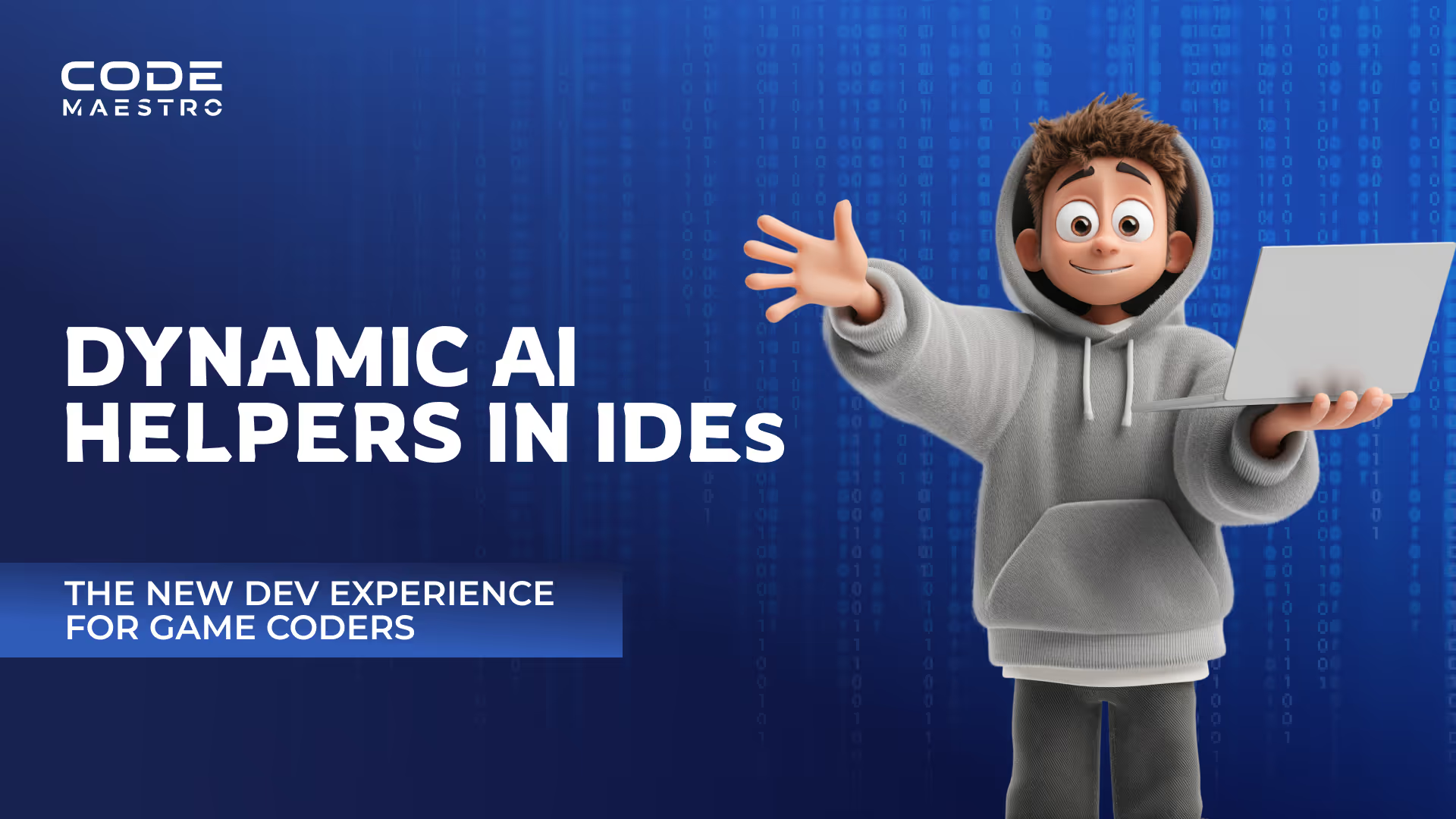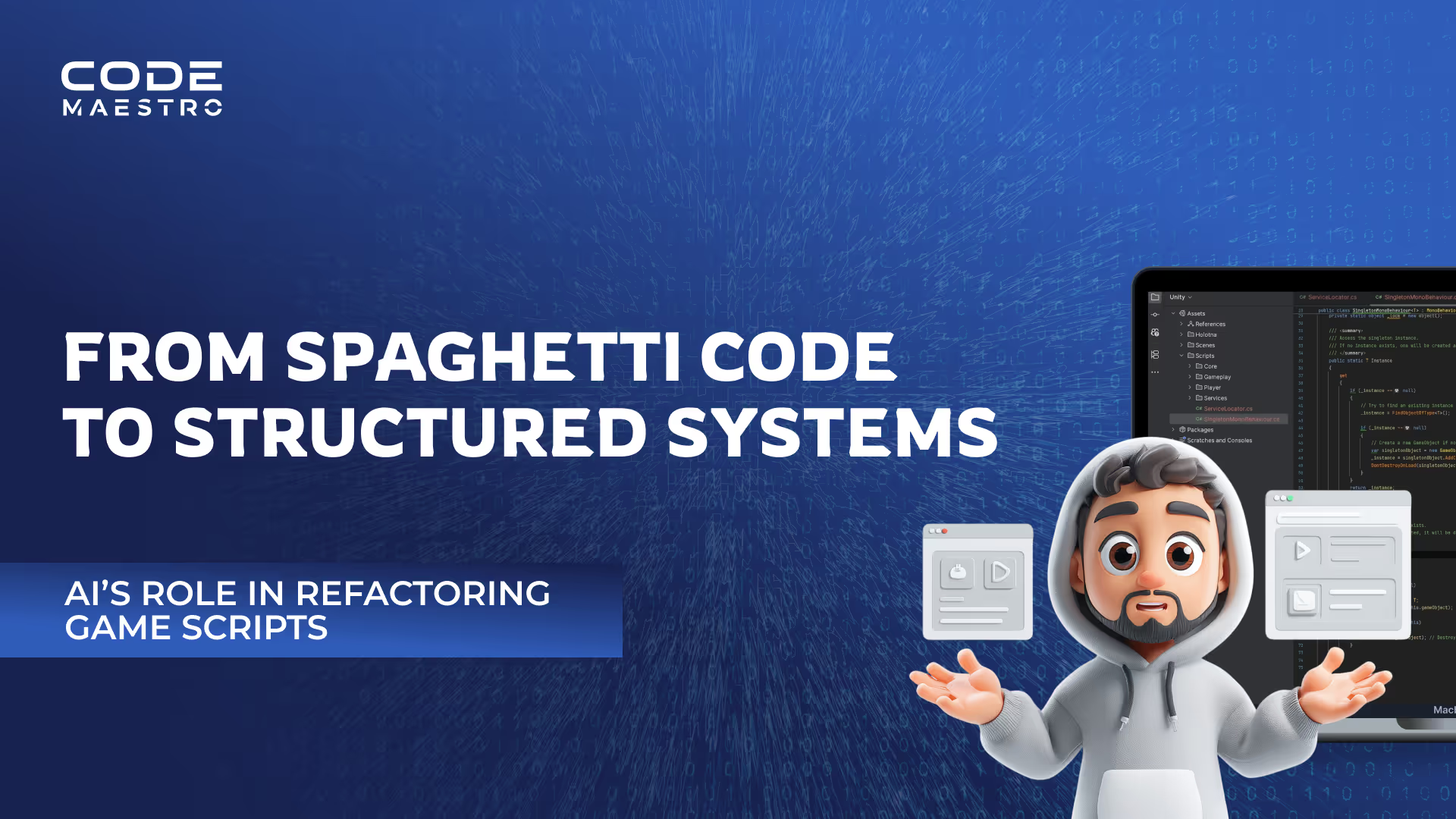AI-Powered Code Reviews: Catching What Humans Miss in Game Projects
Table of Contents
Importance of Code Reviews
Game code is a living organism: rendering pipelines evolve, network layers branch for new platforms, and scripting hooks multiply as designers experiment. Code reviews are the circulatory system that keeps those parts healthy. Each pull request becomes a micro-lesson, spreading engine lore from veterans to juniors and surfacing hidden side-effects before they reach players. Reviews also lock stylistic cohesion in place, so six months of hot-fixes later the codebase still reads as if it came from one thoughtful author. When every file follows the same rhythm, future refactors feel like editing prose rather than deciphering random notes.
Human Limitations in Code Reviews
- Fatigue and oversight. After hours of scrolling, even the sharpest reviewer starts skimming, missing an unchecked pointer or an out-of-range animation tick that only bites on certain GPUs.
- Subjective bias and inconsistent feedback. One engineer flags every single naming slip, another cares only about data layouts. The tug-of-war confuses juniors and lets subtle race conditions survive the merge.
- Deadline pressure. A sprint demo looms, QA blocks on a feature branch, and reviewers click “Approve” with a promise to revisit later — which rarely happens.
These gaps widen in complex game projects where a single diff might touch C++ engine code, Lua gameplay scripts and platform-specific build files in one sweep.
How AI Augments Code Reviews
- Automated style and best-practice enforcement. The AI applies naming, spacing and macro rules the instant a push lands, freeing humans to discuss architecture instead of tabs versus spaces.
- Deep bug and vulnerability detection. Machine-learning models trained on thousands of past exploits flag data-race patterns, integer wrap-arounds, insecure save-file handling and shader permutations that overload certain drivers.
- Performance-focused suggestions. By analysing past profiler traces, the system recommends cache-friendly array layouts, branchless math, or shader-variant trimming exactly where they pay off.
- Game-specific convention checks. Whether the studio uses Unreal reflection macros, Unity ScriptableObjects or Godot signals, the AI knows the house rules and warns when a diff strays.
- Objective, data-driven scoring. Each comment carries a severity score derived from historical crash data, letting leads sort must-fix items from “nice to clean later” noise.
With the repetitive checklist work handled automatically, human reviewers can sink their time into bigger design questions — should this AI behaviour live on the server or the client, will this new resource loop inflate the economy?
Benefits
AI-assisted reviews push both quality and velocity upward. Pull requests clear faster because low-level nits are resolved before a human even opens the tab. Engineers spend less mental energy policing style and more imagining clever gameplay systems. The main branch stays green for longer stretches, so designers iterate on stable builds instead of firefighting regressions. Over time the studio accrues less technical debt, onboarding new hires becomes smoother, and patch cadences tighten without crunch.
Code Maestro’s Integration
Code Maestro takes code review beyond syntax checks — offering feedback grounded in your game’s real structure and systems.
- Project-Aware Review Suggestions
Instead of analyzing code in isolation, Code Maestro understands scene relationships, gameplay dependencies, and architectural patterns — surfacing deeper issues early. - Beyond Style Enforcement
Code Maestro’s feedback includes design-level insights, potential logic flaws, and risky refactor zones — not just spacing or naming concerns. - Seamless Developer Experience
Integration fits into your workflow without disruption. No extra tools to learn, no switching tabs — just smarter reviews where you already work. - Built for Game Teams
As planned connectors roll out, Code Maestro will plug into platforms like GitHub, Jira, and Unity — enriching reviews with test status, task context, and system-wide awareness. - Faster, More Relevant Code Checks
With architecture in view, Code Maestro keeps reviews focused on what matters — helping teams approve with confidence and catch issues before they grow.
Elevate your game code reviews with Code Maestro
Game code is complex — reviews should be smart, not shallow.
Code Maestro enhances your workflow with AI-driven agents that highlight meaningful risks, suggest targeted improvements, and adapt to your game’s logic and architecture.
No more missed edge cases or vague comments — just focused insights that help your team ship faster and cleaner.
Let Code Maestro do the heavy lifting in reviews — so your developers can focus on building what matters.



